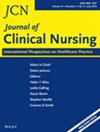Association Between Depression and Dyadic Self-Care in Stroke Patient–Caregiver Dyads and Mediation of Self-Efficacy: An Actor–Partner Interdependence Mediation Model
Abstract
Aim
To examine the effects of depression on dyadic self-care in stroke patients and their caregivers, as well as the potential mediating role of self-efficacy in this relationship.
Design
A multi-centre cross-sectional study design was employed.
Methods
From May to September 2022, stroke patients and their caregivers were recruited from China using a multi-centre stratified sampling method. Data analysis was conducted using a structural equation model based on the Actor-Partner Interdependence Model extended to include mediation. Depression in patients and caregivers was assessed using the Patient Health Questionnaire-9. The self-care self-efficacy scale was utilised to measure patient self-efficacy, while the caregiver self-efficacy in contributing to patient self-care scale was used for caregivers. Patient self-care was evaluated with the Self-Care of Stroke Inventory and caregiver contributions to self-care were assessed using the Caregiver Contributions to Self-Care of Stroke Inventory.
Reporting Method
This study followed the STROBE checklist.
Results
306 patient-caregiver dyads were enrolled. The direct effect between depression and dyadic self-care was not confirmed in stroke patients and their caregivers (p > 0.05). Patient self-efficacy had significant indirect actor effects on self-care maintenance (β = −0.173, p < 0.001), monitoring (β = −0.146, p < 0.001) and management (β = −0.186, p < 0.001). Caregiver self-efficacy had an indirect actor effect on caregiver contributions to self-care maintenance (β = −0.096, p < 0.001), monitoring (β = −0.073, p < 0.001) and management (β = −0.106, p < 0.001). The partner effect analysis showed caregiver self-efficacy plays a potential mediating role in the relationship between patient depression and caregiver contributions to self-care maintenance (β = −0.037, p = 0.036), monitoring (β = −0.028, p = 0.032) and management (β = −0.040, p = 0.036). Caregiver depression reduced caregiver self-efficacy, lowering patient self-care monitoring (β = −0.040, p = 0.004) and management (β = −0.047, p = 0.002) levels.
Conclusion
The findings indicate interactive effects between depression, self-efficacy and dyadic self-care among stroke patients and their caregivers. Therefore, the development of targeted dyadic interventions to address depression and enhance self-efficacy in both patients and caregivers should be considered.


 求助内容:
求助内容: 应助结果提醒方式:
应助结果提醒方式:


